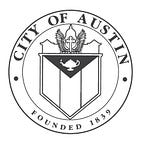People with disabilities call for changes in policing
How the voices of people with disabilities are helping the City of Austin reform public safety
It is a pivotal time for police accountability nationwide. Like many cities around the country, Austin has embarked on the work of reimagining public safety, striving to address the unique needs of community members that face inequities within policing.
However, all voices must be brought to the table to create actual change, and many cities still have missing perspectives in this conversation. Austin is no exception.
Background
According to a 2018 City of Austin audit report, Austin has the highest per capita rate of police shootings during a mental health crisis of the fifteen largest cities in the U.S.
At the July 10, 2020, meeting of the Mayor’s Committee for People with Disabilities, multiple committee members voiced concerns about the lack of consideration regarding the negative experiences people with disabilities often have with law enforcement. After receiving this feedback, OPO developed a plan to engage community members to learn about the experiences of people living with disabilities and law enforcement.
On May 21, 2021, in collaboration with the Mayor’s Committee for People with Disabilities, the Mayor’s Office, and the Equity Office, OPO hosted the Town Hall on Public Safety: People with Disabilities and Policing. The event was held virtually and offered closed captioning and interpretation in American Sign Language, Spanish, and Vietnamese.
Forty-two community members participated, including individuals with lived experiences, care providers, and other community members who wanted to listen and learn. Participants were placed into breakout rooms, where facilitators asked community members to respond to a series of questions centered around the types of experiences people with disabilities have when interacting with law enforcement.
Notetakers at the event recorded the responses shared by community members.
This included personal stories of both positive and negative experiences with law enforcement, concerns of parents and educators of students with disabilities, and suggestions to improve police interactions.
Lived Experience is lived expertise
The work of OPO is informed by community input. To transform the feedback of community members into actionable recommendations, OPO worked with the City of Austin’s Center for Excellence and Innovation staff to analyze and synthesize the data. This process involved reviewing the feedback collected at the event, highlighting common themes and input, and developing recommendations for APD that address the community’s concerns.
OPO reviewed the 196 comments from community members. Below are a few unedited quotes shared at the event:
- “As a Black parent of a child with disabilities, it’s very difficult to even consider calling the police in an emergency.”
- “Some people have disabilities that are not physical and visible but still existent, and law enforcement may not understand that.”
- “There is a significant amount of distrust within the deaf community with law enforcement, several negative interactions were mentioned, cases where officers were either not responsive or had to really be pushed to provide service or support.”
- “For visually impaired individuals, no eye contact can be misinterpreted by police.”
Thanks to the strength and vulnerability of community members who shared their experience, OPO identified the following areas of concern:
- The misunderstanding and lack of knowledge of disabilities within law enforcement can lead to negative experiences.
- There is a lack of training and resources provided to APD to handle situations involving a person with a disability.
- Having a disability that is not visible can put an individual at greater risk when interacting with police.
- Intersectionality affects an individual’s experience with law enforcement, particularly for people of color with a disability.
- There can be a negative impact on individuals with disabilities when officers are called into school systems.
- Interactions with police negatively impact individuals experiencing mental health crises due to a lack of resources, knowledge, and de-escalation training.
To read more community feedback, view the full report.
The community is stronger together
OPO is grateful to the community members who have brought forth these concerns, shared their stories with us, and collaborated with us to help create change.
The findings from this event are only a beginning and more work is needed in order to improve policing for people with disabilities. To that end, OPO will host a follow-up town hall event in 2022.
To receive updates about the upcoming event, or to learn more about how to get involved in the planning committee, sign up for the OPO newsletter.
Acknowledgments
This event was the product of collaboration with several partners who provided expert consultation to ensure accessibility and inclusivity. We are truly grateful for their help in making this work possible.
- Mayor’s Committee for People with Disabilities
- ArtSpark Texas
- Governor’s Committee on People with Disabilities
- City of Austin’s Americans with Disabilities Act Program
- Equity Office
- City of Austin’s Center for Excellence and Innovation
- City of Austin’s Communications and Public Information Office
- City of Austin staff volunteers
City of Austin leadership played a key role in ensuring this event’s success. We appreciate their participation and support.
- Mayor Steve Adler
- City Manager Spencer Cronk
- Assstant Chief Jerry Bauzon
- Office of Civil Rights Director Carol Johnson
Learn more about the City of Austin’s Office of Police Oversight at atxpoliceoversight.org.
